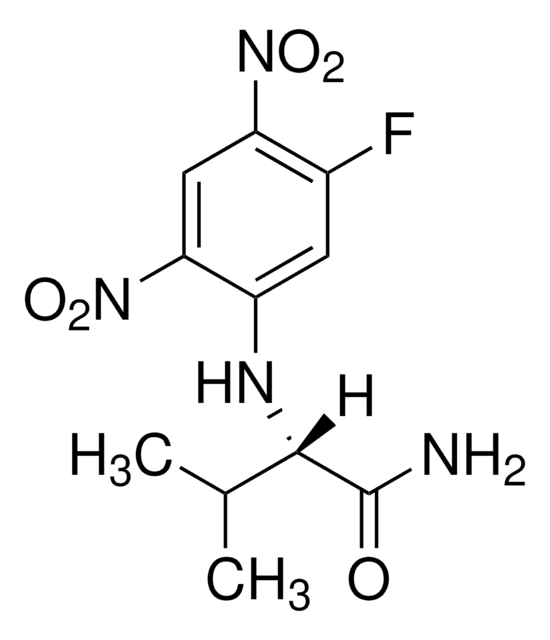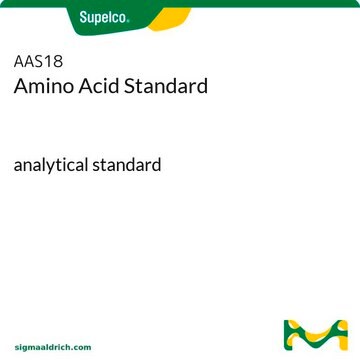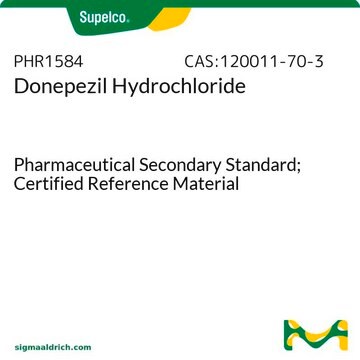71478
Nα-(2,4-Dinitro-5-fluorophenyl)-L-alaninamide
for chiral derivatization, LiChropur™, ≥99.0%
Synonym(s):
FDAA, Marfey’s reagent
About This Item
Recommended Products
grade
for chiral derivatization
Quality Level
Assay
≥99.0% (sum of enantiomers, TLC)
≥99.0%
form
powder
optical activity
[α]20/D +56±2°, c = 1% in acetone
optical purity
enantiomeric ratio: ≥99.5:0.5 (HPLC)
quality
LiChropur™
technique(s)
HPLC: suitable
storage temp.
2-8°C
SMILES string
C[C@H](Nc1cc(F)c(cc1[N+]([O-])=O)[N+]([O-])=O)C(N)=O
InChI
1S/C9H9FN4O5/c1-4(9(11)15)12-6-2-5(10)7(13(16)17)3-8(6)14(18)19/h2-4,12H,1H3,(H2,11,15)/t4-/m0/s1
InChI key
NEPLBHLFDJOJGP-BYPYZUCNSA-N
Looking for similar products? Visit Product Comparison Guide
General description
Application
Other Notes
Legal Information
Signal Word
Warning
Hazard Statements
Precautionary Statements
Hazard Classifications
Eye Irrit. 2 - Skin Irrit. 2 - STOT SE 3
Target Organs
Respiratory system
Storage Class Code
11 - Combustible Solids
WGK
WGK 3
Flash Point(F)
Not applicable
Flash Point(C)
Not applicable
Personal Protective Equipment
Choose from one of the most recent versions:
Already Own This Product?
Find documentation for the products that you have recently purchased in the Document Library.
Customers Also Viewed
Our team of scientists has experience in all areas of research including Life Science, Material Science, Chemical Synthesis, Chromatography, Analytical and many others.
Contact Technical Service










